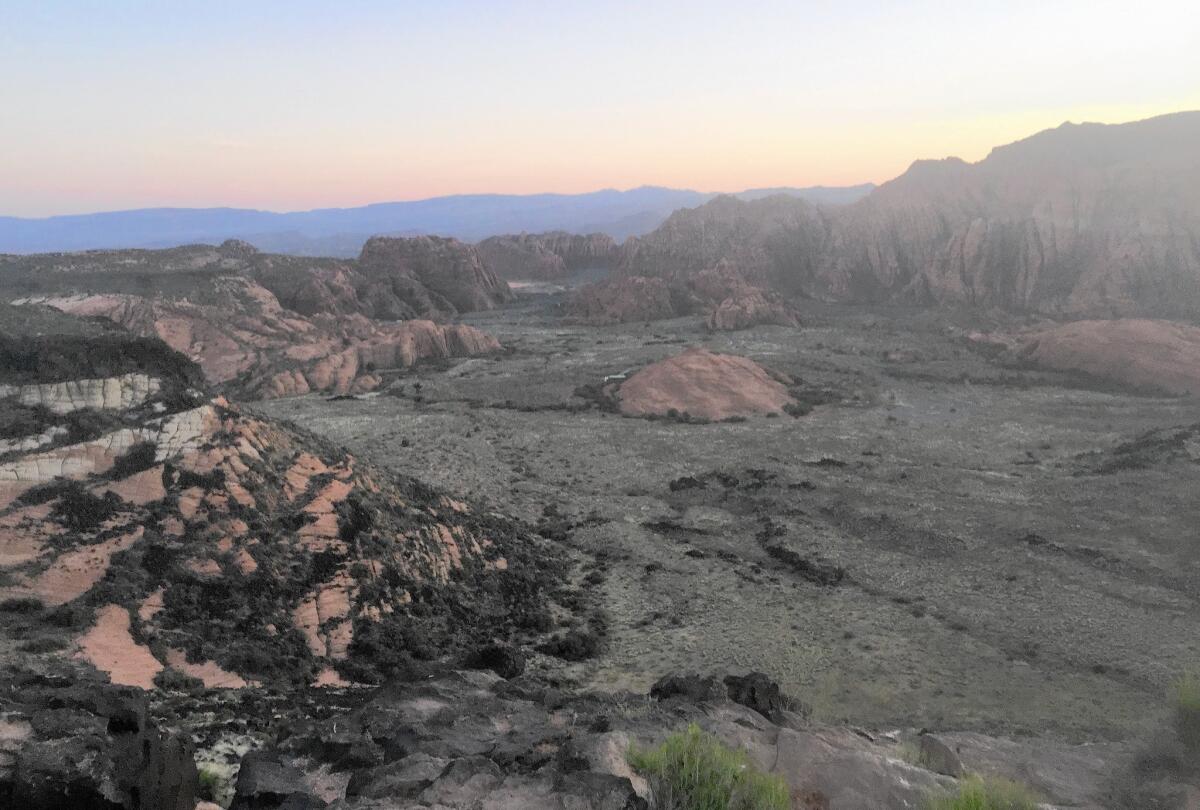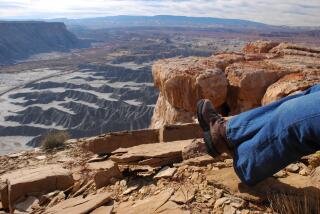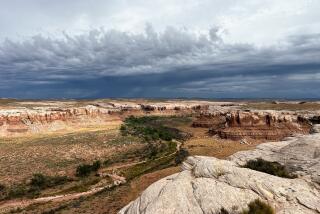Opinion: Hey, Republicans, get your hands off of our federal lands

A Utah congressman on Thursday abandoned a bill that would have forced the federal government to sell off more than 3.3 million acres of public land in 10 states. It’s good that he did, because the forced sales were an astoundingly bad idea and, thankfully, opposed by many of his constituents.
But that doesn’t mean that Republican Rep. Jason Chaffetz and the rest of the new generation of sagebrush rebels have given up on trying to wrest control of land that, to borrow a Woody Guthrie lyric, was made for you and me. They need to be firmly opposed.
Conservatives across the West have long sought to force the federal government to turn over some of the 640 million acres it owns (a little over a quarter of the country) to state control or private hands. The argument generally is that the states have the better perspective on how best to manage the lands, and so should be given the opportunity to do so.
That’s one of those ideas that sounds fine in the abstract but dissolves when you realize that most of them simply want to open the land to further, and less regulated, development and exploitation than the federal government would allow (they’re also targeting some national parks).
And Congress made it easier last month to offload federal land with a little-noted change to House rules pushed by Utah Rep. Rob Bishop, one of the most persistent House Republicans in trying to convert federal land to state land. Formerly, the federal government had to consider the value of any land that it sought to get rid of, and compensate for it in the budget. With the new rule, the land is deemed essentially to have no budgetary impact, making it easier to sell or transfer.
As the Wilderness Society’s Alan Rowsome said, the rule “paves the way for a wholesale giveaway of our American hunting, fishing and camping lands that belong to us all. Make no mistake, the giveaway is for the benefit of the drilling and mining interests that have a lock-grip on Congress and the rest of Washington.”
These efforts are just going to continue, and the opposition to them must be unwavering. Federal lands are our mutual heritage.
That new approach ignores the reality that federal lands intrinsically have value as real estate and, according to the National Wildlife Federation, bring in more than $2 billion in lease payments. Access to the land is a key component of the $646 billion outdoor recreation industry that generates $80 billion in taxes and supports 6.1 million jobs (three times the employment in the oil and gas industry).
And yes, opening the lands up for exploitation of oil and gas would create economic benefits, as the industry points out, but at the more disastrous cost of adding more fossil fuels to the fires that are increasing global temperatures, and spurring climate change.
Even though federal lands lie within states, the lands belong to the entire country. People who live in states with a lot of federal land (like Nevada, which is 85% federally owned, or here in California, which is 46% federally owned) do not have any more special claim to it than the rest of us. In fact, if anyone has a better claim to it than the federal government, it would be the native tribes from whom it was stolen, though to do so would be impractical. And even more than 60% of the people in the most-affected states believe the federal government should retain the lands rather than turn them over to states or private ownership.
That isn’t to say that the federal government has done a bang-up job managing our land. Chronically underfunded by Congress, the Bureau of Land Management (responsible for 250 million acres of federal land) receives constant criticism from the right, which dislikes land-use restrictions, and the left, which condemns the government granting leases for oil, gas, timber, grazing and other private use.
But that’s no reason to turn stewardship over to states (which don’t have the budgets to properly manage it, either), or sell it off to private interests. If the Western conservatives were really interested in proper stewardship of the land, they would work in Congress to increase the budgets of the agencies most responsible for it, the BLM, the Fish and Wildlife Service and the National Park Service.
In fact, the chronic underfunding leads to a lot of the land management shortcomings, which seems to be part of the Republican strategy to starve federal programs they don’t like, then declare them failed.
These efforts are just going to continue, and the opposition to them must be unwavering. Federal lands are our mutual heritage.
Follow my posts and re-tweets at @smartelle on Twitter
More to Read
A cure for the common opinion
Get thought-provoking perspectives with our weekly newsletter.
You may occasionally receive promotional content from the Los Angeles Times.











